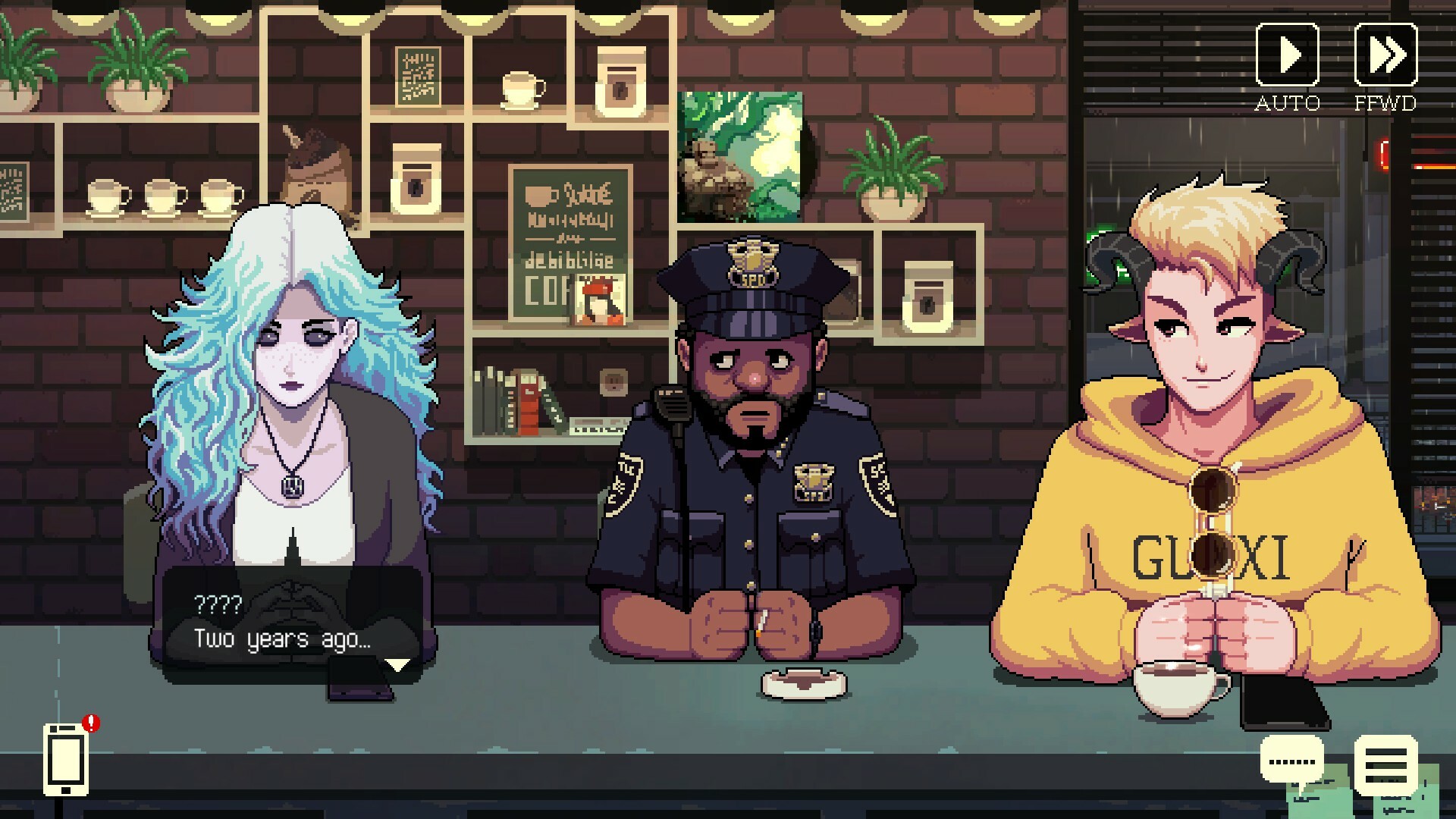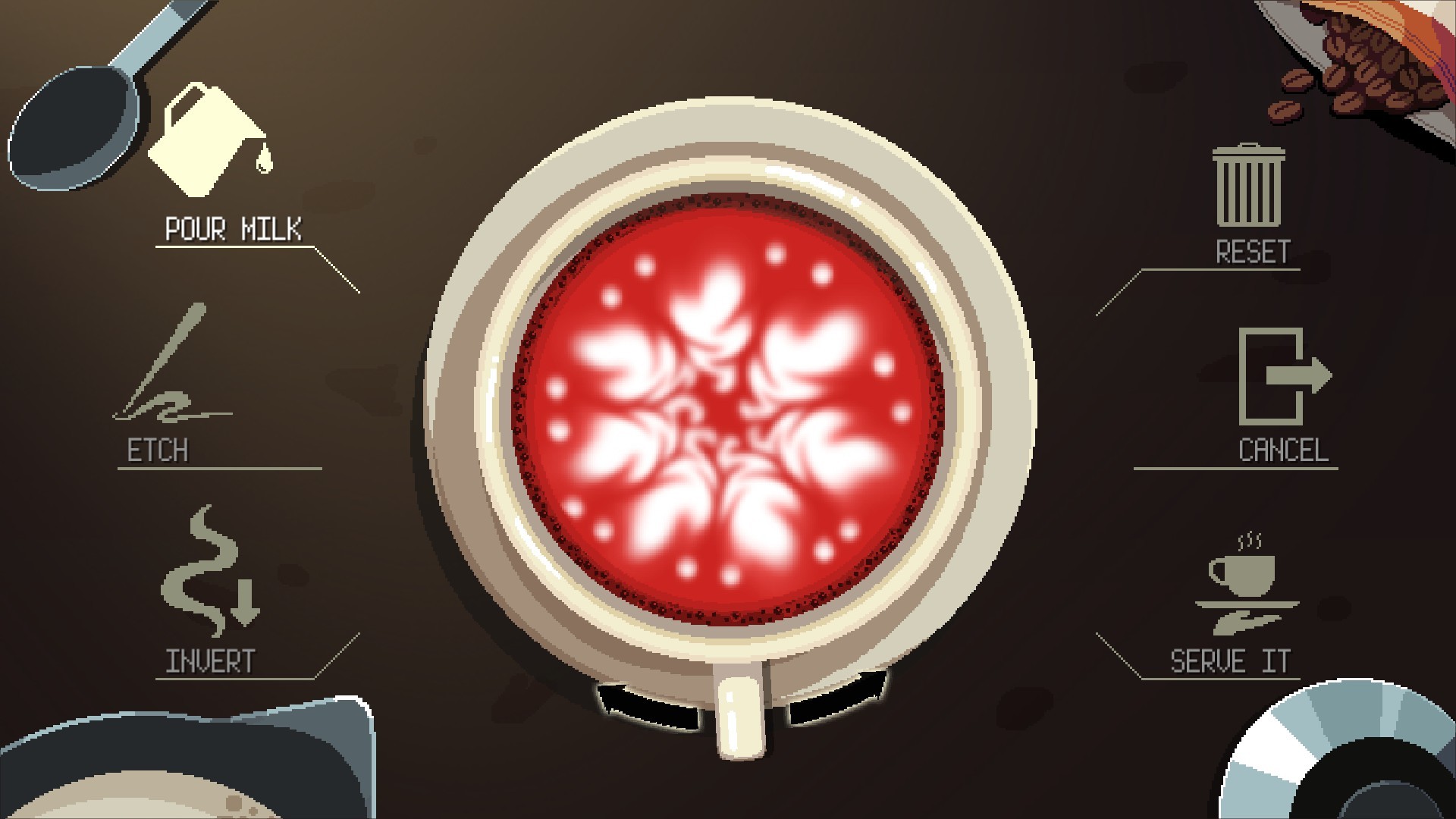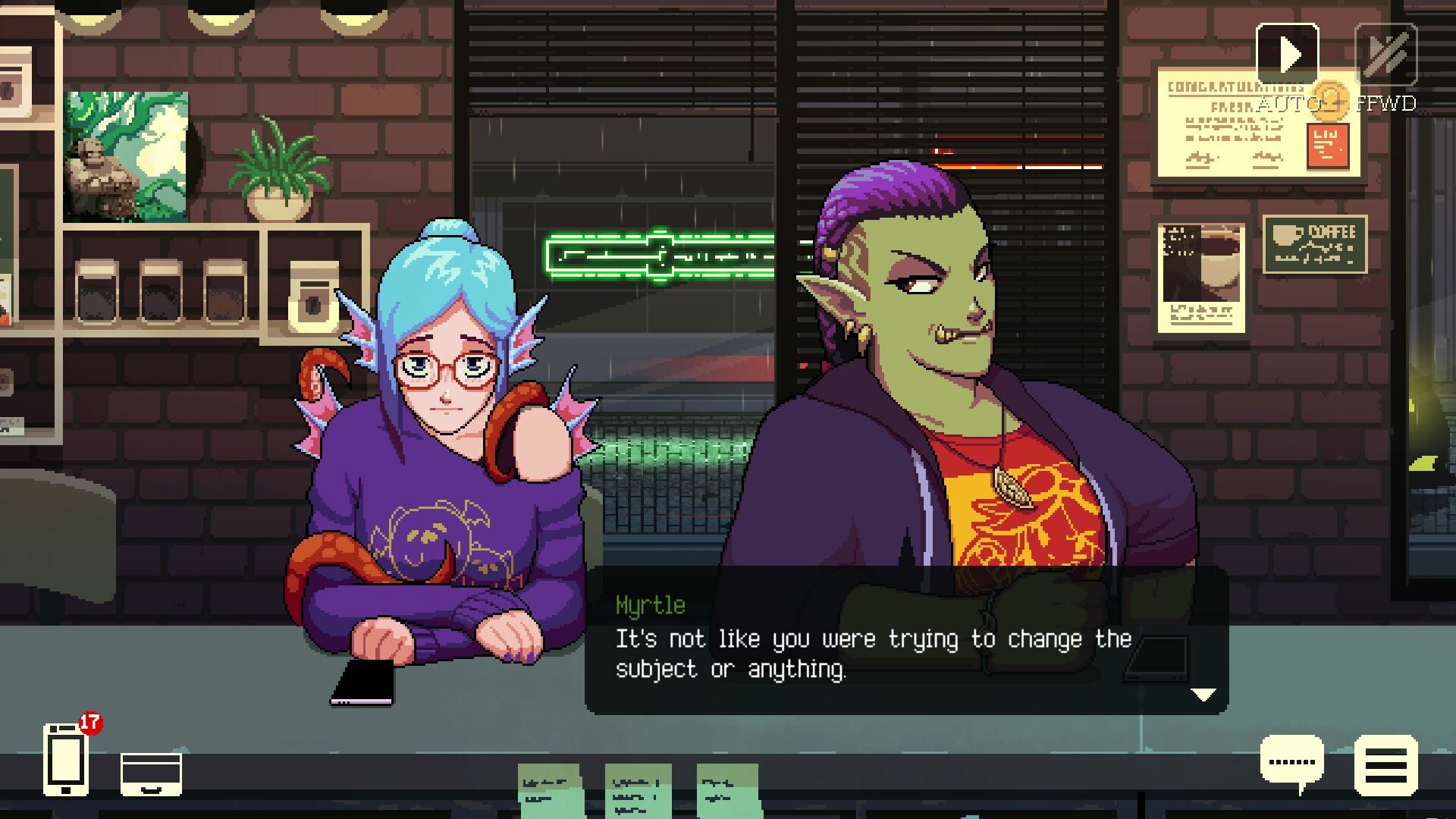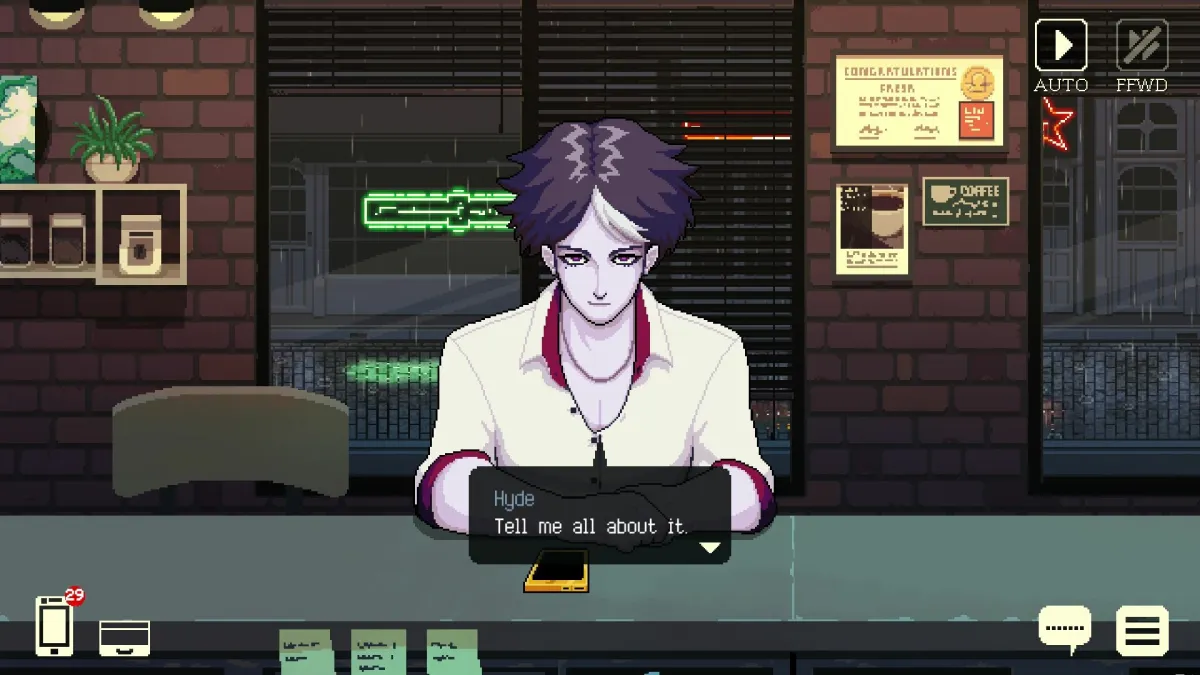It’s the small things that matter. At the risk of seeming like a boomer shouting at clouds, Coffee Talk Episode 2: Hibiscus & Butterfly has made me long for a genuinely pleasant customer service experience. Before going any further, I need to preface this by saying I don’t really have regular haunts. I don’t spend much time in coffee shops or bakeries, but nor do I think that matters. Maybe I am just old (or old at heart), but I’ll be more likely to go back to a shop if I get good customer service. Simple. And that’s why I came back to Coffee Talk.
An anecdote: A few months ago now, my partner and I went to a particular chain restaurant for the first time since before the pandemic. When we moved to the counter to place our order, we were told that all orders had to be made online by scanning a QR code — even though there was a person standing right there to tell us that.
I get it, okay. It was a chain. Their goal isn’t to give people a great dining experience; it’s to balance their bottom line. Getting rid of frontline staff is an excellent way to reduce outgoing costs. And, okay, to some degree it’s more convenient to the customer. But it also feels so clinical and cynical, at once an extension of the pandemic era and reinforcement of our dystopian age where we’re all too busy tapping away at our screens to pay attention to one another.
I’ve singled out that experience, but it’s hardly unique. In recent times, I’ve had a counter staff member at the cinema get distracted with random tasks in the middle of serving me. I’ve watched team members at a takeaway store engrossed in their phones, completely oblivious to a growing queue at the front counter.

My day job is in community services and community development. Even there, although we have an imperative to divert our full attention to clients, there’s the pressure of administration, projects, planning, and internal support structures that burble away in back of mind. I don’t blame frontline customer service staff for being distracted, brusque, transactional, or straight-up burnt out.
It’s easy to imagine reasons or excuses for these experiences. It’s easy to apportion blame to people at all levels of the business for the perceived shortcomings of those most likely — and sometimes least deserving — to bear the brunt of customer anger. At the same time, I think any anger or blame is misplaced. The perfunctory transactionality of customer service is less a symbol of our times and more a symptom of it. Everyone’s just trying to get by in a world that’s stressed to its breaking point.
A whiny article on a pop culture website isn’t going to solve the world’s problems, nor is an extremely niche indie game — even if it is backed by the scale and reach of Game Pass. But maybe it can do some good. Maybe it can inspire some harassed receptionist to take a moment to make their customer feel less like a number and themselves more like a human.
Because that’s exactly what the barista in Coffee Talk does, in general or in Episode 2: Hibiscus & Butterfly.

Whether the customer is a regular from the first game or one of the newcomers, it’s never a cursory, “Hi, what can I get ya?” Instead, the barista probes. Rather than simply expecting the customer to know exactly what they want, they take the time to work out their whims and make suggestions. They introduce characters to one another and facilitate conversations, with a keen awareness of when to press on and when to pull back.
And of course, that’s because Coffee Talk is a fiction. Toge Productions can present these scenarios as ideals. The barista doesn’t need to be afraid that the person sitting across from them is going to fly off the handle because it simply wouldn’t make sense in this cozy fantasy setting. Nevertheless, fiction can be instructive, both directly and indirectly.
What we see from the barista in Coffee Talk is almost radical empathy. The franchise’s alternative Seattle is one where orcs brush up against selkies, banshees, and aliens. It’s a thin veil for the racial and ideological divisions that exist in the real world. Bias and prejudice are recurring talking points throughout both games, and they thread the needle of that contention by making it a non-issue. Sure, the games poke fun at things like “Orc Westerns,” but it’s a gentle ribbing. When it comes to customer service, half-feral werewolves get the same steady treatment as succubi and satyrs. It’s non-judgmental.

That spirit of equality represents an open door. Those characters that accept the invitation become part of the furniture. They are diffused into the atmosphere of Coffee Talk, telling and retelling their stories as they cross paths with the myriad others that populate the shop. But that’s not all. The barista is the constant. It’s through their gentle prompting that the stories recur and deepen. The barista creates a safe space where friendships can blossom and, through that, a space where individuals can blossom.
There’s a powerful communitarian ideal that permeates Coffee Talk. As individuals, the characters suffer, floating on the dark sea of their circumstances. Even those with close relationships beyond the bounds of the coffee shop, like Aqua and Myrtle, are ships in the night, signaling and bumping up against each other without being able to communicate clearly. They’re each caught up in their private whirlpools, and it’s the barista and the others who observe their personal crises that act as lighthouses. Without the barista’s influence, their dedication to the customers, to listening, to serving, none of that would be possible — and that’s emphasized by the way the endings are tied to the suitability of the drinks you make.
I’ve had conversations lately about the perceived lack of empathy in the world and how we might course-correct. What I’ve learned from my day job is that it has to be about being less online, less outraged, and more attuned to the people that exist in our local communities. And I think what’s expressed in Coffee Talk dovetails perfectly with that. Community begins in communal spaces, and what more communal spaces are there than the places we go to for food or drink or entertainment or education? Can we maybe just remember that as customers and as customer service agents? Or is that just the idle fancy of a boomer’s child?






Published: May 13, 2023 04:02 pm